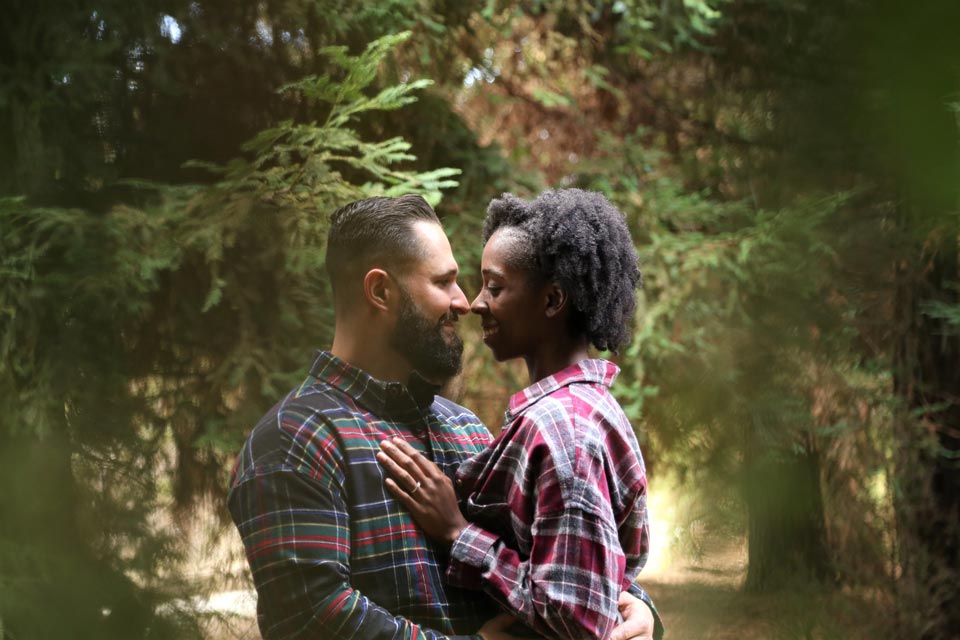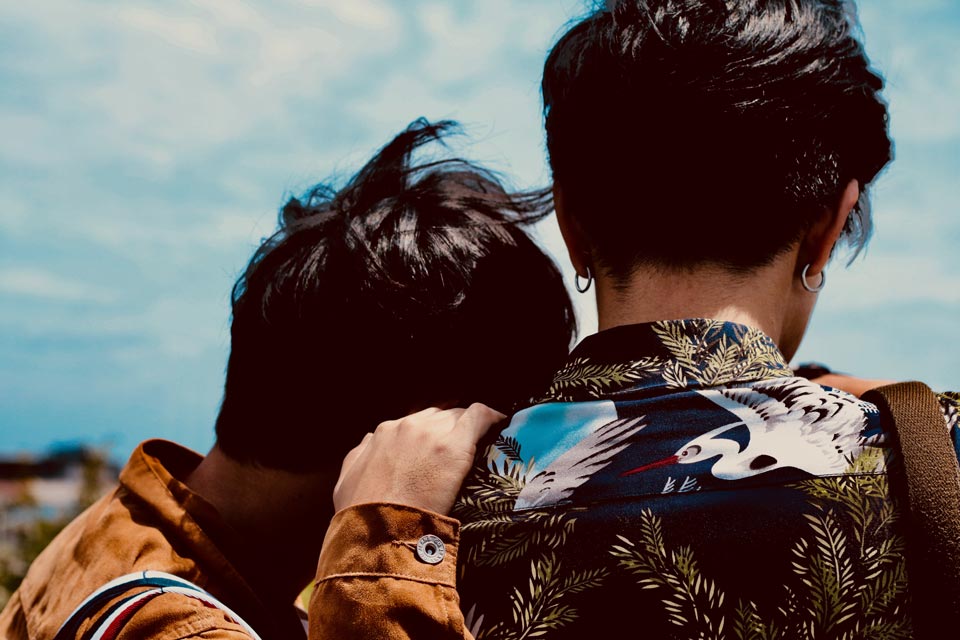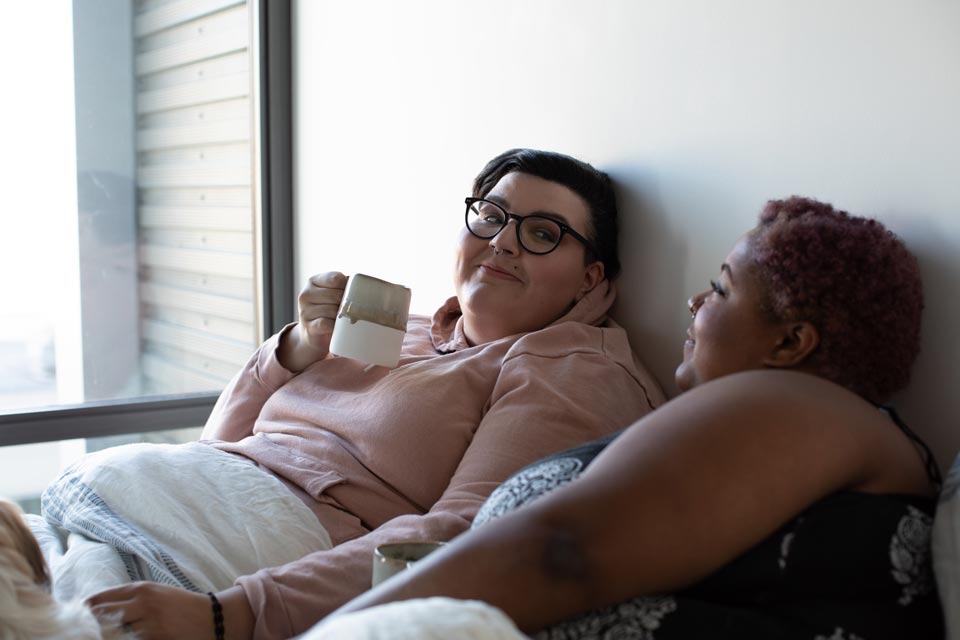Why do people fall in love? It’s the essential mystery of life. What makes us pick one person over another out of the billions on earth? Why are some romances meant to be while others seem doomed from the start?
This article expands on a few scientific studies to explain what causes people to fall in love. You’ll learn about the stages we go through as we experience love for someone.
You’ll also discover why some relationships last forever while others burn out quickly. Can you guess which characteristics make some couples more likely to stay together and enjoy healthy relationships?
Finally, you’ll find out how to find romantic partners who are a good match for you. All in all, this is your guide to falling in and staying in love!
Table of contents:
- The Scientific Point of View
- Being Similar Attracts Two People
- Similar Beliefs and Values
- Physical Attraction
- Personality Traits
- Commitment and Loyalty
- Friendship Also Turns Into Love
- Stages of Falling in Love
- Attraction
- Expressing Feelings
- Unveiling Self Worth
- The Complex Stage
- Accepting or Rejecting
- Commitment to a Plan
- Final Thought!

The Scientific Point Of View
Science has proven that falling in love is not just a feeling; it is also a chemical reaction that happens in our bodies. Here’s how it works:
- The person you are falling for stimulates the pleasure centers of your brain, making you feel happy and relaxed. This boosts your serotonin levels (the “feel good” neurotransmitter).
- Your body releases dopamine, which produces that wonderful excitement and motivation that often comes with new love (not to mention the sex drive).
- Oxytocin causes us to bond with our partners by creating trust and bonding between them—and between us! This helps explain why many people say they feel like themselves when with their significant other.
- Norepinephrine makes us focus intently on our new love interest at all times—it helps explain why we can’t stop thinking about this person or wanting to spend time with them!
It can be seen that falling in love is deeper than just feelings. It involves chemical reactions in the brain, and similar ones need to be happening in the other person’s brain too, for a relationship to succeed and the love to prosper.

Being Similar Attracts Two People
How we view the world and our sense of identity is influenced by how we were raised. We learn to accept certain beliefs and reject others, shaping who we are and what kind of people we attract.
However, this process can happen in reverse as well: a person’s childhood experiences can alter how they perceive their environment later in life.
For example, if you grew up with a lot of money but lost everything when your parents divorced, it might change your values from “money doesn’t buy happiness” to “money makes life easier.”
When two people are similar in terms of personality traits or interests (or anything else), they will naturally be drawn together because there’s something familiar about them—which means it’s easier for both parties involved.
This also makes dating more comfortable because there isn’t any initial friction caused by major differences between two people trying so hard to get along and actually like each other too! This brings us back around to falling in love!
After all, neither has had to adapt their worldview too drastically when coming together with someone else who shares some common ground with them already.

Similar Beliefs and Values
One of the main reasons people fall in love is that they are similar. This similarity can come in several forms, including beliefs, values, and interests. If two people have similar beliefs and values, they may feel a strong connection with one another. For example:
- Both you and your partner value spending time with family over going out on dates
- You both believe that money should be saved and overspent on frivolous things
- If both of you enjoy hiking or cooking
These common thoughts and values allow a relationship to prosper. There is less friction, and it results in better communication and understanding.
Different beliefs are why relationships usually fail. One partner wants something else while the other wants the complete opposite. There is no union, which results in them going their separate ways.

Physical Attraction
Physical attraction is considered the first stage of love and is a combination of physical features and personality.
In this stage, you may fall in love with someone because they have the same interests as you or just because they’re physically attracted to you.
Physical attraction can be defined as “the overall look of your partner.” This includes their body type, hair color, eye color, height, weight…etc.
You will most likely not find someone attractive who doesn’t look like what you consider perfect for yourself. In layman terms, you have set a personality in your head, and if anyone matches it to some extent, the hormones would be firing off!

Personality Traits
The personality traits you’re attracted to are, in many ways, the most important aspect of falling in love. This is because they are what will help you sustain a relationship and make it last.
Our personalities determine what attracts us; what we find attractive in others comes from our unique combination of genes passed down by our parents and shaped by our childhood experiences.
The personality traits you’re attracted to can be broken down into six categories: openness, thoroughness, extraversion/introversion, agreeableness (compassion), neuroticism (emotional stability), and warmth/trustworthiness.
These traits also determine how likely you are to fall in love with someone else based on how your brain processes information about them (i.e., do they fit into your ideal partner profile).

Commitment and Loyalty
There are two types of dedication in a relationship: commitment and loyalty. Commitment is an action, such as saying “I promise I’ll be here for you,” or signing a contract with your partner.
On the other hand, loyalty is an emotion—a feeling that you’ll stick by each other no matter what happens. While they can overlap (like when you say, “I promise I’ll be here for you” while looking into your partner’s eyes), they’re also different.
You can have a deep-seated sense of loyalty without making any promises; likewise, if someone makes a promise to another person but isn’t loyal to them inside, something will go wrong eventually.
It’s important to understand how these two ways of showing commitment work together because they’re necessary for keeping relationships healthy and happy over time; one without the other won’t cut it!

Friendship Also Turns Into Love
How does friendship turn into love? It is easier to fall in love with a friend because you already have that special connection and bond.
You’ve already had time to get comfortable and enjoy each other’s company, so it’d make sense that friendship could lead to something more.
When do you know if you are in love with a friend?
When this happens, it’s safe to say that there’s something special between you! You might feel your heart flutter when they walk into the room or get butterflies every time they text you.
You may even be able to talk about anything with them without feeling nervous or shy, which most people find easier to do with their friends than with their significant other.

Stages of Falling In Love
Falling in love is an entire process. You don’t get up one day and start loving someone. The feeling develops and matures over time. This section will look into the common stages of falling in love.
Attraction
The first stage of love is attraction. This is the stage when you begin to feel an attraction to someone.
You might not even know them, but you feel something for them and want to know them better.
The problem with this stage is that it’s overrated and often comes with unrealistic expectations.
Expressing Feelings
Expressing your feelings is a sign of love and commitment. You want to express that through words, actions, and even gifts if you love someone.
You also want them to know how you feel about them so they can reciprocate the same feelings.
This stage of falling in love involves knowing their past, present, and plans with one another so each party can be comfortable with what could happen next.

Unveiling Self Worth
When it comes to self-worth, there are two main points that matter:
- Your self-worth is not based on what you have or what you do.
- Your self-worth is based on how you feel about yourself and others.
In the stage of unveiling self-worth, one of these components is often missing in your relationship with a partner.
For example, if you’re dating someone who doesn’t value themselves much and doesn’t treat other people well (e.g., they’re verbally abusive), then chances are good that their actions will affect the way that you feel about yourself as well as your ability to trust them over time.
The Complex Stage
The stage of complexity is when most people tend to give up on love. This is the stage in which you are so used to the stress, pressure, and difficulties that come with relationships that it feels like too much work for no reward.
There was nothing wrong with the relationship before this point, but now there are issues. You have probably been together for a long time and are used to each other’s quirks and habits.
However, at this point, you may find these same things annoying or frustrating rather than endearing. You may even feel like giving up on your partner altogether because they’ve become too difficult for your liking!
Accepting or Rejecting
This stage of love is a difficult one. It’s the point at which you decide whether or not you want to continue pursuing this person.
At this stage, both parties have enough information to make an informed decision about whether they should proceed with their relationship or break up.
If you’re thinking about accepting someone as your significant other, there are many things that need to be considered before moving forward with a relationship.
For example: how does this person make me feel? Do I like myself more because of them? What type of future do we see for ourselves together? How much time can we spend together without getting sick of each other (and vice versa)?

Commitment to a Plan
The final stage in which people fall in love is when they decide that their relationship should continue and then make plans for how it will do so.
This step can take many forms: some couples stop dating others and start cohabiting; others get married or move in together; still, others have children and raise them as a family. Others think that their relationship is not working out, so they separate or divorce.
Final Thoughts!
To sum things up, there is no single answer as to why people fall in love. Love is a complex feeling that can be triggered by different factors.
It might be the first sight of your partner or taking a long walk together and talking about life for hours. But one thing is clear: falling in love feels great, and it’s worth experiencing!
